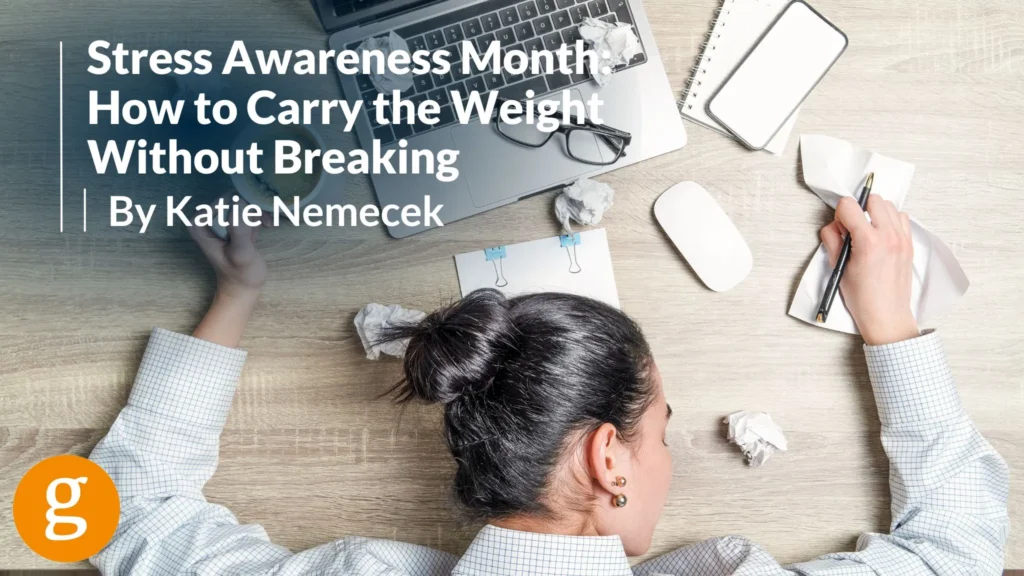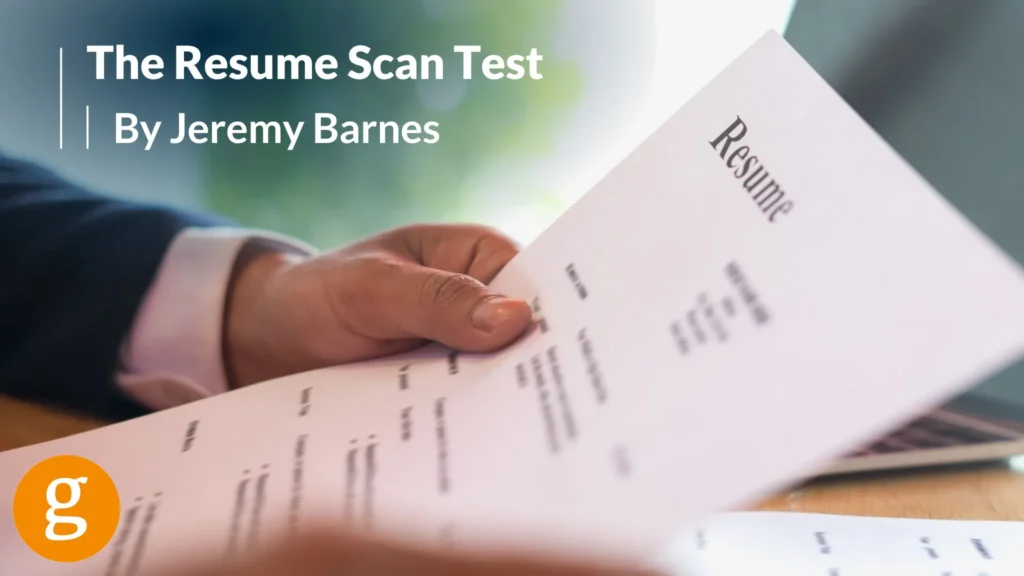Stress Awareness Month: How to Carry the Weight Without Breaking

April is Stress Awareness Month, and honestly, it couldn’t come at a better time. Between work, personal responsibilities, and everything in between, stress tends to become a background noise we ignore – until it’s deafening.
For years, I wore stress like a badge of honor. I threw myself into my work, staying late, taking on more, pushing harder. I told myself I was doing what was necessary to succeed. The truth? I was so committed to productivity that I didn’t realize I was burning myself out. I wasn’t leading a balanced life. I was surviving it.
The workaholic wake-up call
No matter the job or title, I’ve always been the type to go all in. I not only stayed late but also skipped breaks and answered emails on my days off – all in the name of dedication. The weight of constantly striving to “deliver” began to feel like a never-ending loop. Late at night, I was up not with ideas but with stress. I didn’t know how to say no or how to shift the focus from my output to my own well-being.
The pressure eventually caught up with me. I burned out – mentally, physically, and emotionally. What I didn’t know then but realize now is that, “If you don’t prioritize your life, someone else will.” (Greg McKeown, Essentialism). And that’s exactly what happened. I let everything else dictate my priorities, and I paid the price.
How stress silently erodes our lives
Stress doesn’t always show up as panic attacks, breakdowns, increased heart rates, or high blood pressure caused by high stress levels. Sometimes, it’s more subtle, like snapping at loved ones, trouble sleeping, lack of motivation, weight gain, or simply feeling like you’re always “on” but never getting ahead.
Over time, that kind of chronic pressure wears us down in ways that impact our relationships, our clarity, and our health. In my experience, unchecked stress leads to poor decision-making and disconnection – from both people and purpose.
Stephen Covey said it best in The 7 Habits of Highly Effective People: “The key is not to prioritize what’s on your schedule, but to schedule your priorities.”
But when you’re stuck in reactive mode, it’s hard to see the difference.
Shift from survival to strategy with four daily habits
Real change in stress management starts with small, consistent actions. Not heroic overhauls – just the discipline to choose differently each day. James Clear explains this perfectly in Atomic Habits when he writes, “You do not rise to the level of your goals. You fall to the level of your systems.”
That realization helped me start building healthier rhythms that supported, not sabotaged, my energy and focus. I hope these small but meaningful actions might help you, too:
1. Start the day with purpose
I stopped waking up and diving straight into emails. Instead, I began my mornings with movement, silence, or a quick journal entry – because, as Robin Sharma says in The 5AM Club, it’s important to “Own your morning. Elevate your life.” And it’s so true. How you start your daily routine shapes how you handle everything that follows.
2. Protect your time
I created work boundaries and started treating my energy like a resource – not something I could endlessly give away. As James Clear also writes, “Success is the product of daily habits – not once-in-a-lifetime transformations.”
3. Take movement and breaks seriously
A 10-minute walk or brief physical activity, or a moment of mindfulness during a chaotic shift makes more of a difference than you’d think.
4. Simplify where possible
From meal prep to calendar management, reducing decision fatigue helped me feel more in control. It’s not glamorous, but it works. Here are 6 Tactics To Reduce Decision Fatigue.
Long-term wellness is a leadership skill
Sustainable success means building a life that supports your well-being long after the urgency fades. And that requires honest self-checks and intentional action.
I started asking myself questions like, “Am I getting enough sleep? Am I present with my family, or just physically there? Am I saying yes out of obligation or alignment?”
None of this is about doing less. It’s about doing what matters most.
In his book, The Five Major Pieces to the Life Puzzle, author Jim Rohn nailed it when he said, “If you don’t design your own life plan, chances are you’ll fall into someone else’s. And guess what they have planned for you? Not much.”
That quote hit hard. It reminded me that leadership isn’t just about managing others. It starts with managing ourselves.
Stress in the workplace: Why culture matters more than ever
Workplace culture isn’t built through slogans or mission statements. It’s shaped by everyday choices, actions, and conversations. More importantly, it’s a shared responsibility. Leaders play a key role, but behaviors and values reinforced across the entire team define the culture everyone experiences.
In high-pressure industries or fast-paced environments, signs of stress and overextension often become part of the norm. Long hours, skipped breaks, and the mindset of “push through” can quickly become glorified. But over time, this mentality chips away at engagement, creativity, and even talent retention by leading to chronic stress. It sends the message that output matters more than well-being, and that burnout is just part of the job.
That’s why it’s essential for both leaders and teams to intentionally create a culture where well-being is not only respected but expected. When teams feel supported, trusted, and encouraged to care for their health – mental, emotional, and physical – performance improves, not declines.
Author Patrick Lencioni, in The Five Dysfunctions of a Team, argues that the foundation of every successful team is trust. Without it, people won’t feel safe admitting struggles, asking for support, or advocating for better boundaries. When we foster a culture built on openness and human connection, we make room for more sustainable excellence.
Ways employers can reduce workplace stress and build a healthier culture
There are proven stress management techniques that leaders and managers can build into their working environments to reduce the impact of stressors on team members. Here are several ways to take action to promote mental health and well-being during Stress Awareness Month and beyond:
- Normalize boundaries: Encourage people to log off on time, take breaks, and fully unplug during their days off.
- Support flexible scheduling: When possible, allow team members to adjust their hours to meet personal needs.
- Model well-being from leadership: When managers take time off or step back to recharge, it sets a healthy example for team members.
- Celebrate balance, not burnout: Recognize achievements that happen through sustainability, not in spite of exhaustion.
- Host regular team check-ins: Go beyond project updates. Ask people how they are feeling and actively listen.
- Encourage vulnerability: Create psychological safety by being open about your own challenges and limits.
- Promote access to wellness tools: Share mental health resources, recommend personal development content, and provide access to wellness programs.
- Destigmatize asking for help: Make it clear that speaking up when overwhelmed is a strength, not a weakness.
Final thoughts: You’re worth the investment
If you’re reading this and feeling overwhelmed or stretched thin, I want you to know you’re not alone. And more importantly, you don’t need to hit rock bottom before making a change toward self-care. Stress is a part of life but so is managing stress through simple actions.
Robin Sharma reminds us in The 5AM Club that, “The smallest of actions is always better than the noblest of intentions.” You don’t need to overhaul your life overnight. You just need to start.
Get outside. Go to bed earlier. Say no more often. Schedule downtime. Have a real conversation with your team. And most of all, remind yourself that taking care of you isn’t optional – it’s foundational!
Because when you invest in your own well-being, you’re not just becoming a better professional. You’re becoming a better leader, partner, family member, friend, and person.
Build a stronger, healthier team and personal future
Ask me more about ways to manage stress and lead your best life or team. There’s no better time to start than during Stress Awareness Month! I am a senior recruiting partner with Goodwin Recruiting and have a lot to share about workplace culture, recruiting top talent, and advancing careers.
Share This Article






































